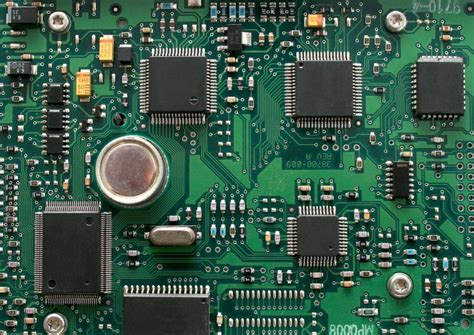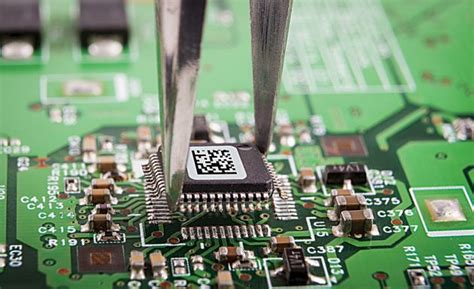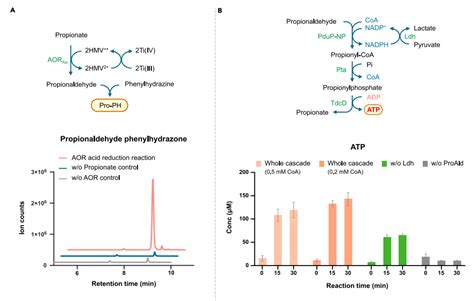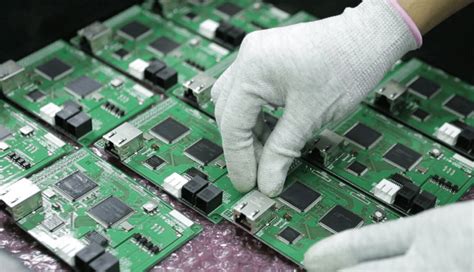PCB Assembly in the Bay Area: A Hub of Innovation and Excellence
Introduction
The San Francisco Bay Area, often referred to simply as the Bay Area, is renowned worldwide as a global center for technology and innovation. Home to Silicon Valley, the region is a hotbed for startups, established tech giants, and cutting-edge research institutions. Within this ecosystem, Printed Circuit Board (PCB) assembly plays a critical role in bringing electronic products to life. From consumer electronics to medical devices, autonomous vehicles, and renewable energy systems, PCB assembly is the backbone of modern technology. This article explores the PCB assembly industry in the Bay Area, highlighting its significance, key players, technological advancements, and the unique advantages of operating in this dynamic region.
1. The Importance of PCB Assembly in the Bay Area
The Bay Area’s reputation as a global technology hub is built on its ability to innovate and produce high-quality electronic products. PCB assembly is a fundamental part of this process, as it transforms design concepts into functional hardware. The region’s demand for PCB assembly services is driven by several factors:
- High Concentration of Tech Companies: The Bay Area is home to some of the world’s largest technology companies, including Apple, Google, Intel, and Tesla, as well as thousands of startups. These companies rely on PCB assembly to produce everything from smartphones and laptops to electric vehicles and IoT devices.
- Rapid Prototyping and Innovation: The fast-paced nature of the tech industry requires quick turnaround times for prototyping and production. PCB assembly services in the Bay Area are well-equipped to meet these demands, offering rapid prototyping and low-volume production for startups and established companies alike.
- Diverse Industries: Beyond consumer electronics, the Bay Area is a leader in industries such as biotechnology, aerospace, renewable energy, and autonomous systems. Each of these industries relies on specialized PCB assembly to meet their unique requirements.
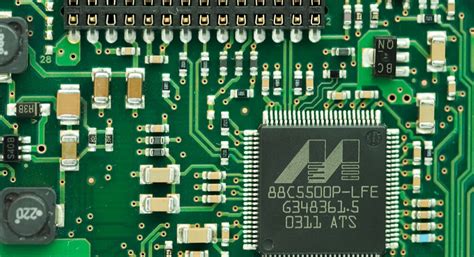
2. Key Players in Bay Area PCB Assembly
The Bay Area boasts a diverse ecosystem of PCB assembly providers, ranging from large-scale manufacturers to specialized contract electronics manufacturers (CEMs). These companies offer a wide range of services, including design support, prototyping, full-scale production, and testing.
2.1 Large-Scale Manufacturers
Large-scale PCB assembly providers in the Bay Area cater to the needs of major tech companies and high-volume production. These manufacturers often have state-of-the-art facilities equipped with advanced machinery for automated assembly, inspection, and testing. Examples include:
- Flex (formerly Flextronics): With a significant presence in Silicon Valley, Flex provides end-to-end PCB assembly services, from design and prototyping to full-scale production. The company serves industries such as automotive, healthcare, and consumer electronics.
- Jabil: Another global leader in electronics manufacturing, Jabil has facilities in the Bay Area that offer high-mix, low-volume PCB assembly services tailored to the needs of startups and established companies.
2.2 Specialized Contract Electronics Manufacturers
In addition to large-scale manufacturers, the Bay Area is home to numerous specialized CEMs that focus on niche markets or specific technologies. These companies often provide more personalized services and are well-suited to startups and small businesses. Examples include:
- Screaming Circuits: Based in Silicon Valley, Screaming Circuits specializes in quick-turn PCB assembly and prototyping. The company is known for its fast turnaround times and ability to handle complex designs.
- Advanced Assembly: This Colorado-based company has a strong presence in the Bay Area and offers low-volume PCB assembly services with a focus on quality and reliability.
2.3 In-House Assembly by Tech Giants
Some of the Bay Area’s largest tech companies, such as Apple and Tesla, have in-house PCB assembly capabilities. This allows them to maintain tight control over quality, intellectual property, and production timelines. In-house assembly is particularly common for companies that produce highly specialized or proprietary products.
3. Technological Advancements in Bay Area PCB Assembly
The Bay Area is at the forefront of technological innovation, and this extends to the PCB assembly industry. Companies in the region are leveraging advanced technologies to improve efficiency, quality, and capabilities.
3.1 Automation and Robotics
Automation is a key trend in PCB assembly, and Bay Area manufacturers are leading the way. Automated pick-and-place machines, robotic soldering systems, and automated optical inspection (AOI) systems are widely used to increase precision and reduce production times. Automation is particularly important in the Bay Area, where labor costs are high, and the demand for high-quality assembly is intense.
3.2 High-Density Interconnect (HDI) Technology
As electronic devices become smaller and more complex, HDI technology has become increasingly important. HDI PCBs feature finer traces, smaller vias, and higher component density, enabling the production of compact and high-performance devices. Bay Area PCB assembly providers are well-versed in HDI technology, making them a preferred choice for companies developing cutting-edge products.
3.3 Flexible and Rigid-Flex PCBs
Flexible and rigid-flex PCBs are gaining popularity in applications such as wearable devices, medical equipment, and aerospace systems. These PCBs require specialized assembly techniques, and Bay Area manufacturers have the expertise and equipment to handle these challenges.
3.4 Sustainable Manufacturing
Sustainability is a growing concern in the electronics industry, and Bay Area PCB assembly providers are adopting green manufacturing practices. This includes the use of lead-free solder, recycling of materials, and reducing energy consumption during production. Companies in the region are also exploring ways to minimize waste and improve the environmental impact of their operations.

4. Advantages of PCB Assembly in the Bay Area
The Bay Area offers several unique advantages for companies seeking PCB assembly services. These advantages make the region an attractive destination for both local and international businesses.
4.1 Proximity to Tech Hubs
One of the biggest advantages of PCB assembly in the Bay Area is its proximity to Silicon Valley and other tech hubs. This allows for close collaboration between designers, engineers, and manufacturers, resulting in faster turnaround times and better communication throughout the production process.
4.2 Access to Skilled Talent
The Bay Area is home to some of the world’s top engineering and technical talent. This includes experts in PCB design, assembly, and testing, as well as professionals with specialized knowledge in areas such as HDI technology and flexible PCBs. Access to this talent pool ensures high-quality assembly and the ability to tackle complex challenges.
4.3 Innovation Ecosystem
The Bay Area’s innovation ecosystem is unparalleled, with a strong culture of collaboration and knowledge sharing. Companies in the region benefit from access to cutting-edge research, emerging technologies, and a network of industry experts. This ecosystem fosters innovation and enables PCB assembly providers to stay ahead of industry trends.
4.4 Support for Startups
The Bay Area is known for its vibrant startup culture, and many PCB assembly providers in the region cater specifically to startups. These companies offer services such as low-volume production, rapid prototyping, and design support, helping startups bring their ideas to market quickly and cost-effectively.
5. Challenges in Bay Area PCB Assembly
While the Bay Area offers many advantages, it also presents certain challenges for PCB assembly providers and their customers.
5.1 High Costs
The Bay Area is one of the most expensive regions in the world, with high labor costs, real estate prices, and operational expenses. These costs are often passed on to customers, making PCB assembly in the region more expensive compared to other locations.
5.2 Supply Chain Disruptions
The global electronics supply chain has faced significant disruptions in recent years, driven by factors such as the COVID-19 pandemic and geopolitical tensions. These disruptions can lead to delays in component availability and increased costs, posing challenges for PCB assembly providers in the Bay Area.
5.3 Competition
The Bay Area’s status as a technology hub means that competition among PCB assembly providers is intense. Companies must continually innovate and improve their services to stay competitive, which can be both a challenge and an opportunity.
6. Future Trends in Bay Area PCB Assembly
The PCB assembly industry in the Bay Area is poised for continued growth and innovation. Several trends are shaping the future of the industry:
6.1 Increased Adoption of AI and Machine Learning
Artificial intelligence (AI) and machine learning are being integrated into PCB assembly processes to improve quality control, optimize production, and reduce waste. These technologies enable real-time monitoring and analysis, helping manufacturers identify and address issues before they impact production.
6.2 Growth of IoT and Edge Computing
The Internet of Things (IoT) and edge computing are driving demand for specialized PCBs that can support low-power, high-performance applications. Bay Area PCB assembly providers are well-positioned to meet these demands, thanks to their expertise in advanced technologies.
6.3 Expansion into New Markets
As the Bay Area continues to innovate, PCB assembly providers are expanding into new markets such as renewable energy, electric vehicles, and advanced medical devices. These markets present new opportunities for growth and require specialized assembly capabilities.
Conclusion
PCB assembly is a vital component of the Bay Area’s technology ecosystem, enabling the production of innovative and high-quality electronic products. The region’s concentration of tech companies, access to skilled talent, and culture of innovation make it a global leader in PCB assembly. While challenges such as high costs and supply chain disruptions exist, the Bay Area’s strengths far outweigh its drawbacks. As the industry continues to evolve, driven by trends such as automation, AI, and IoT, the Bay Area will remain at the forefront of PCB assembly, shaping the future of electronics manufacturing.


